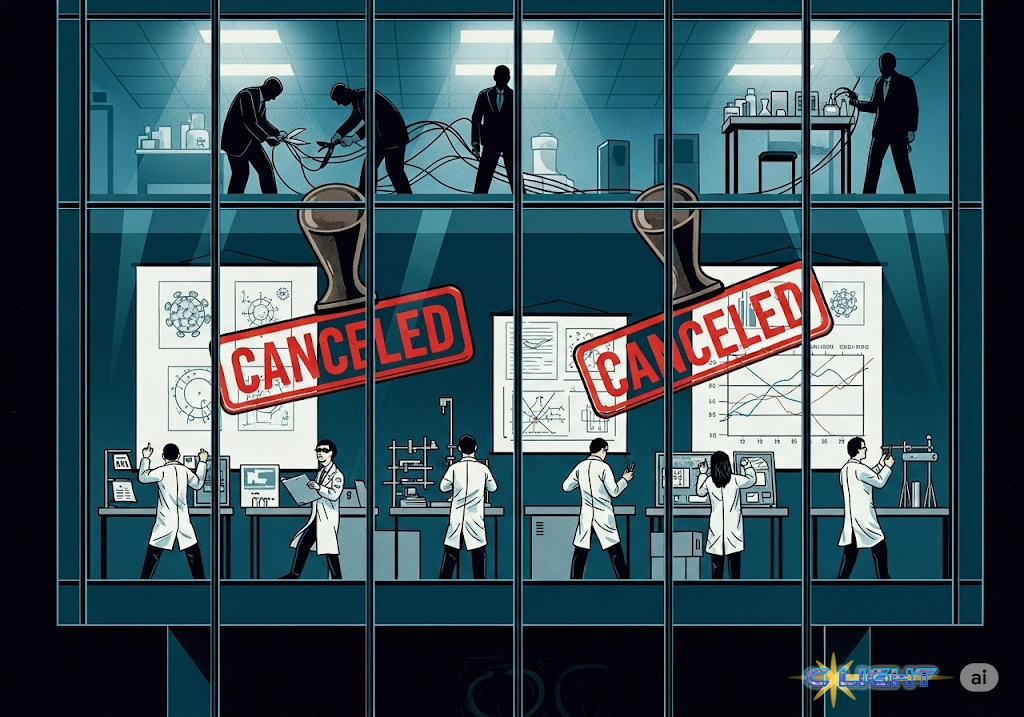A journalist who spent a decade covering the Centers for Disease Control and Prevention in Atlanta remembers it well. It’s an impressive campus of glass and steel, with enough hand sanitizer to cover everyone in Washington for a month. But the buildings weren’t the story. The story was the people inside. The scientists were deeply, almost religiously, committed to their work. They didn’t take chances. They left no option untested. And when it came to vaccines for children, they were, in a word, intense—every step of the way was handled with exacting care. That’s why, as that journalist might tell you, any attack on that institution and its work is most likely a lie.
This week, that institution came under direct assault from its own government. In a bizarre “split-screen” drama, the nation’s public health policy imploded in two cities at once. In Atlanta, a newly purged and handpicked vaccine advisory committee began a chaotic meeting seemingly designed to question decades of settled science. Simultaneously, in Washington D.C., the nominee to lead the CDC was being grilled by alarmed senators about the chaos her potential new boss, HHS Secretary Robert F. Kennedy Jr., had unleashed.
The siege began two weeks ago, when Kennedy, a man who built his career on anti-vaccine activism, fired all 17 members of the CDC’s expert Advisory Committee on Immunization Practices (ACIP). He replaced them with a smaller, less experienced panel of eight, including some who have promoted vaccine misinformation and two who have been paid as expert witnesses in lawsuits against vaccine manufacturers.
The first day of the new ACIP meeting confirmed the worst fears of the scientific community. The new chair, Martin Kulldorff—who stated he was fired from his professorship at Harvard for refusing a COVID vaccine—opened the meeting not with a call for scientific rigor, but with an invitation for skepticism. He announced the formation of new workgroups to investigate the “cumulative effect” of the childhood vaccine schedule and to re-evaluate the highly successful Hepatitis B vaccine given at birth—both classic talking points of the anti-vaccine movement.
The agenda was a direct attack on established science, most notably with the discussion of thimerosal, the mercury-based preservative that was falsely linked to autism decades ago. The presenter for this topic, Lyn Redwood, is a former leader of Kennedy’s own anti-vaccine organization, Children’s Health Defense. In a move that sent shockwaves through the public health community, it was revealed that Redwood has now been appointed as a special government employee to the CDC’s own vaccine safety office—the fox has not just been put in charge of the henhouse; it’s been given an office and a government ID.

What followed was a direct and unprecedented silencing of the CDC’s own science. On Tuesday, career scientists at the agency, in an act of subtle rebellion, posted a report on the CDC website clearly stating that decades of evidence show thimerosal is safe. By Wednesday, as the meeting began, Kennedy’s HHS had it forcibly taken down.
The career staff at the CDC are in a state of shock and quiet revolt. “Sorry. I’m not in control,” one CDC official at the meeting was overheard telling a liaison from a medical group. “Mr. Kennedy and the agency’s director’s office have ‘taken over.'”
The most powerful acts of protest have been resignations. At least two senior CDC scientists have quit since Kennedy’s purge began. One of them, Dr. Fiona Havers, a top adviser on vaccine policy, delivered a scathing assessment of the new regime. Calling Redwood “not qualified,” she warned that putting an activist inside the vaccine safety office takes Kennedy’s interference to “another—even more shocking—level.” She resigned, she said, because she no longer had confidence that data would be used objectively to set policy.
While the scientific process was being dismantled in Atlanta, the political fallout was escalating in Washington. Senator Bill Cassidy, the Republican whose vote was essential for Kennedy’s confirmation, has been in open revolt, decrying the purge he was promised would not happen. He’s now been joined by fellow Republican Senator Lisa Murkowski of Alaska, who questioned whether Kennedy’s actions violated his commitments to the Senate.

The entire chaotic affair has become the central focus of the confirmation hearing for the new CDC director, Susan Monarez, who is being forced to answer for the actions of a secretary who appears determined to undermine the very agency she is nominated to lead.
This is more than a policy dispute. It is a siege on a culture. The culture of the CDC, as remembered by those who have walked its halls, is one of intense care, of methodical, painstaking work to protect the public. The new culture being imposed is one of political grievance, ideological crusades, and a stunning disregard for evidence. The dedicated scientists of the CDC now find themselves fighting a two-front war: one against the diseases they have spent their lives trying to conquer, and another against the political leadership of their own department.
Discover more from Clight Morning Analysis
Subscribe to get the latest posts sent to your email.










